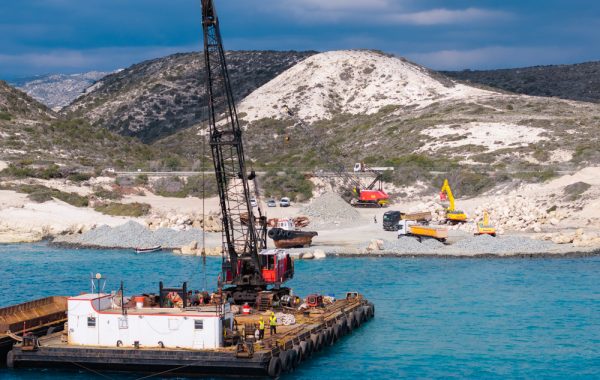The significant damage caused by the recent fires in Solea and Argaka, is undoubtedly one of the largest in recent decades and constitutes serious damage to the habitats and species. It is estimated that around 10-12 square kilometres of Natura 2000 area were burnt, with many woodland bird species affected, including Bonelli’s Eagle, the only Eagle species in Cyprus. 40 – 50 years ago, these fires would have been equally tragic, but the forest recovery prospects would have been promising as fires are a natural component of the Mediterranean ecosystem. Unfortunately, however, in 2016, due to anthropogenic climate change, which now is a reality, the prospects of forest and wooded land recovery are much more limited because of desertification. The fact that many fires are not a natural element, but incompatible human intervention, worsens the situation even further.
The forests that were burnt, offer invaluable ecosystem services such as retaining water (it is no coincidence that the only healthy aquifer in Cyprus is below the Troodos mountains and Paphos Forest), retaining and enriching the soil, regulating climate, absorbing carbon dioxide, while they are also a habitat for biodiversity (and many endemic species of Cyprus), and play a significant role in human well-being – invaluable ecosystem services now largely diminished. Healthy ecosystems are the best insurance we have in order to withstand and adapt to the effects of climate change, which is why following those two very catastrophic fires we need to consider, firstly the restoration and reforestation of the burnt areas, and secondly the issue of prevention of future fires, caused by negligence and human error.
Firstly the reforestation. Much has been said and written about ‘fast track reforestation’ and such like. Natural ecosystems don’t work like this though. In fact the most important thing we can do is, to do nothing and give the ecosystem time. Burnt areas need to be protected, ‘cordoned off’ almost, to stop people stealing the burnt wood and any mechanical interventions should be prohibited at all costs. No roads should be opened, no major anti-erosion interventions made and no major anti-flooding measures taken either, as all of these can accelerate erosion. The most important thing after a fire is not to break up the soil and accelerate loss of soil. Mediterranean ecosystems naturally rebound after fires, but if the soil is lost then plants can’t root anymore. The Department of Forests has a policy along those lines and should be allowed to lead the process. Volunteers can be helpful mostly for wardening the area to stop unwanted interventions, stealing of burnt wood, etc. Restoration takes a long time. It will be at least 15 years before a new forest is starting to take root again.
Which is why, especially at a time of climate change and when we need the forests services so much, it’s important to look also at prevention. And by that we don’t mean forest roads and fire breaks, we mean control of urban sprawl.
The fact that the two large and destructive fires were caused by human negligence around homes found on the forest boundaries, stresses in the strongest terms the need to modify the Republic’s isolated housing policy and limit the root cause which enables the construction of houses almost everywhere, even on forest boundaries, dramatically increasing the risk of fire as demonstrated by the recent fires.
The Opinion on an amendment of the isolated housing policy has already been issued by the relevant Departments since December 2015 and the proposed change when implemented will significantly reduce this phenomenon, but unfortunately, it is still pending for publication by the Minister of the Interior. The amendment of the isolated housing policy, as fully justified in the opinion of the relevant Departments should be published immediately by the Minister of the Interior, in order to curb urban sprawl and the multiple problems that this causes. Protecting the forests and natural habitats, and their priceless value, cannot simply be based on the hope that some people will not behave in a naive and criminally negligent way in the countryside, destroying priceless common goods such as the forest. Appropriate and rigorous, proactive government policy is necessary.
Climate change is now a reality and the forests of Cyprus will struggle much longer to recover than they would have 40-50 years ago because of climate change and desertification. Some will never recover. At the same time, healthy ecosystems, and forests are very important ecosystems, are our best insurance for withstanding and adapting to climate change. That is why we need a brave and bold new look at policies of forest protection and conservation.
For a more in-depth account, proposed restoration measures and policy review please click here (available only in Greek).




